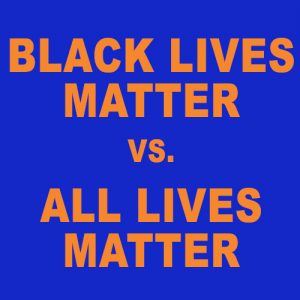(Akiit.com) “Our nation is moving toward two societies, one black, one white—separate and unequal … The alternative is not blind repression or capitulation to lawlessness. It is the realization of common opportunities for all within a single society.”
Those words weren’t written or spoken to describe today’s crisis of race and injustice now being exposed, condemned and lamented in a flood of videos, news articles, opinion columns and polls. They were written a half-century ago for the 1968 Kerner Report, the document of the emergency presidential commission that examined the causes of the Black urban rebellions that convulsed American society just at the moment when the Civil Rights Movement had achieved its great national legislative victories from the mid-1960s to the early 1970s.
Of course, the Kerner Report deliberately got the first part of that famous assessment wrong. America was not “moving” toward two societies. It had always been. The so-called “White backlash” that erupted in both the South and the North in the early 1960s and the Black urban rebellions that came later both illuminated how difficult re-constructing American society as one nation “indivisible” still was.
famous assessment wrong. America was not “moving” toward two societies. It had always been. The so-called “White backlash” that erupted in both the South and the North in the early 1960s and the Black urban rebellions that came later both illuminated how difficult re-constructing American society as one nation “indivisible” still was.
So it remains today when – to cite one relevant example – a Black elementary school supervisor named Philando Castile and a Black United States Senator named Tim Scott shared an experience common to vast numbers of Black Americans: being harassed by White police officers for no reason other than the color of their skin.
For Philando Castile, a man described by friends and co-workers alike as friendly, compassionate and responsible, that harassment – he had been stopped by Minneapolis-area police 52 times for alleged minor traffic violations in recent years – led to his unjustifiable killing by a police officer.
For Senator Scott, Republican of South Carolina, the racial explosions of this month compelled him to deliver last week in the Senate what a Washington Post report described as a “bristling and personal speech” about his numerous negative encounters with White cops, including being repeatedly pulled over for alleged traffic violations.
“The vast majority of the time,” Scott said, “I was pulled over for nothing more than driving a new car in the wrong neighborhood, or some reason just as trivial. Imagine the frustration, the irritation, the sense of a loss of dignity that accompanies each of those stops.”
Scott also said the negative encounters included his being stopped and questioned by U.S. Capitol police officers several times as he was entering the Senate office buildings, despite his wearing a pin that identifies him as a member of Congress. “I have,” Scott continued, “felt the anger, the frustration, the sadness and the humiliation that comes with the feeling that you are being targeted for being nothing more than yourself.”
The repeated, infuriating, and too often lethal shared experience of these two individuals, who otherwise occupied vastly different stations in American society, with millions of other Black Americans underscores that “being targeted for being nothing more than yourself” remains the central fact of that centuries-old American tradition: the “racial divide.”
That’s the foundation of all the polls published in the wake of the police shootings in Baton Rouge, La., where Alton Sterling was shot to death and in suburban St. Paul, the site of Philando Castile’s killing, and Micah Xavier Johnson’s sniper attack on White Dallas police officers a day later. They’ve confirmed the blunt title of a late-June Pew Research Center survey released before the incidents occurred: “On Views of Race and Inequality, Blacks and Whites are Worlds Apart.”
Especially, one might add, on views of police behavior.
Why should anyone be surprise – given that we continue to literally see Black and Latino men, women and children beaten and killed by non-Black police officers in questionable circumstances. And to discover how commonplace are the bigoted emails, tweets and text messages some White police officers exchange with one another while on duty. And to read governmental reports documenting that numerous police departments allow officers to behave in virulently racist and even criminal ways toward the citizens of color they’re supposed to serve. And, finally, to discover that in case after case of these beatings and deaths, holding police accountable for their actions is thwarted by institutional processes that are – to use a currently fashionable word – “rigged” against justice being done.
We can and should be inspired by the significant progress Blacks and other previously stigmatized groups have made in claiming the protections of full citizenship. The growth in tolerance among Whites that have helped produce that progress is clearly evident in the Pew report as well.
But, its findings, along with those of the latest batch of polls and surveys on race, also underscore the major continuing dynamic of U.S. Black-White relations. That is that Black Americans – and American society at large—are still ensnared in the old dynamic of slow progress shadowed by diminishing but still-fierce resistance.
Columnist; Lee A. Daniels
May contact this talented writer at; leedanielsjournalist@gmail.com.








Leave a Reply